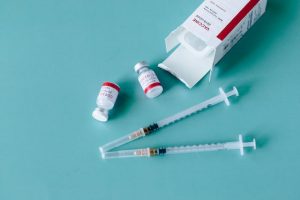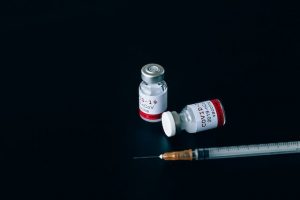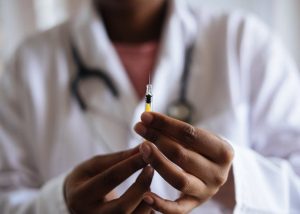For most of us, the covid pandemic has been happily consigned to the history books, but for some the effects of the virus live on.
Indeed, for those living with a debilitating illness as a result of receiving one of the covid vaccines and for families with a member who died during the pandemic, the physical and emotional toll has been great.
The government has recognised this fact by adding covid to the list of specified diseases named in the Vaccine Damage Payments Act of 1979. This was done via the Vaccine Damage Payments (Specified Disease) Order (2020).
It should be noted that the VDPS is not a compensation scheme but one that issues a tax-free lump-sum payment of £120,000 to individuals who have suffered a debilitating illness or have had a family member die after receiving a vaccination against a preventable disease, covid in this case.
As such, a recipient of an award under the VPDS scheme isn’t precluded from subsequently filing a civil case against a vaccine maker or health body.
The Vaccine Damage Payment Story So Far
By 1 September 2023, the NHS Business Services Authority (NHSBSA), the body tasked with processing claims, had received 7,160 claims to the VDPS scheme.
Of these, 142 had been successful and 3,030 rejected.
192 claims were found to be ‘invalid’; that is, they were deemed outside the scope of the VDPS or were duplicate claims.
3,796 claims were still to be processed, with 1,010 filed more than six months previous.
Making a Vaccine Damage Payment Claim

A VPDS claim can be submitted via this website.
A claim can be made on behalf of a third party, but the claimant must be able to prove that he has power of attorney for the individual.
To claim on behalf of a person who has died, the claimant must be managing the deceased’s estate.
This means that the claimant must be able to provide one of the following documents to the authorities:
- A letter of administration.
- A last will and testament.
- A grant of probate.
- A deed of trust.
How the VDPS Claim is Processed

An independent, third-party medical assessor assesses all claims using the individual’s medical records, including GP notes, hospital notes and any other information from relevant healthcare providers.
The bar for a successful claim is high.
The claimant must be able to demonstrate ‘severe disablement’ – that is, a physical or mental disability that represents a 60% impairment of the individual physical or mental abilities.
If an individual claims for a deceased member of the family, the death must be linked to the vaccine.
This could be a mental or physical disability and will be based on medical evidence from the doctors or hospitals involved in your treatment.
Vikki Spit from Cumbria was the first person to receive compensation. Her 48-year-old partner, Zion, became ill eight days after receiving the AstraZeneca vaccine and died at the Royal Victoria Infirmary in Newcastle in May 2021.
Vaccine Damage Payments

If the individual making the claim is over the age of 18, the payment will be made directly into his bank account.
If the claim has been made for an individual under the age of 18, any payment will be made to the trustees.
Family members can be appointed as trustees.
Benefits Changes
In July 2023, the Department for Work and Pensions (DWP) changed the law so that recipients of a VDPS award would have the payment disregarded when it comes to applying for means-tested benefits such as Universal Credit.
Time Limits on Making a Vaccine Damage Payment Claim

A claim for a child must wait until the child has reached his second birthday.
For an adult to make a claim, it must be filed before one of the following deadlines:
- On or before the individual’s 21st birthday (if he is dead, the date at which he would have reached the age of 21).
- Within six years of the vaccination date.
VDP Claim Timeline
It typically takes at least six months from the date the assessor receives the claimant’s medical records to process a VDP claim.
According to figures released late last year, cases are currently being processed at the rate of 13 per month.
A spokesman for the Department of Health and Social Care recently said that it had “scaled up and modernised the operations of the VDPS to allow cases to be processed more quickly – including by digitising the application process and increasing the number of administration staff working on claims”.
“We have already scaled up and modernised the operations of the VDPS to allow cases to be processed more quickly, including digitising the application process and increasing the number of administration staff twenty-fold (from four to 80).”
Appealing a VDPS Decision

A VDPS decision can be appealed.
This is called asking for a ‘mandatory reversal’.
To file an appeal, a claimant must:
- Explain why he thinks the decision is wrong.
- Include new evidence in support of the appeal; this should include evidence not used in the original claim.
Information the claimant needs to include with the appeal:
- The date the original decision was made.
- The claimant’s name and address.
- The claimant’s date of birth.
- The claimant’s national insurance number.
The NHSBSA will inform the appellant if it arrives at a decision different from the original one in light of new evidence.
If the appeal is rejected, the claimant will receive a ‘mandatory reversal notice’, which will outline the reasons the appeal was rejected.
This will also explain how the claimant can appeal again. There is no limit on the number of times an appeal can be lodged.
The appeal should be sent to the following address:
Vaccine Damage Payment Scheme
Unit 5 Greenfinch Way
Newburn Business Park
Newcastle-upon-Tyne
NE15 8NX
Legal Routes
The VPD isn’t the only way someone suffering as a result of a covid vaccine can seek redress.
Indeed, damages received via the VPD scheme are not treated as compensation – meaning it remains possible to take a pharmaceutical company to court.
“The inadequacies of the scheme mean that some families will have no choice but to look at litigation to access substantive financial support,” says Sarah Moore of Partner at Leigh Day.
“Proceedings were issued in August 2023 on behalf of 2 claimants. Since then, at the beginning of December 2023, we have issued a further 35 claims against AstraZeneca – again on behalf of individuals who have suffered serious injury or bereavement because of VITT. As such the total number of issued claims is 37. We anticipate issuing further claims early this year.”
So far, two groups have sought damages from AstraZeneca, manufacturers of one of the UK’s main covid vaccines.
The Hausfeld-represented group is seeking damages under the Consumer Protection Act (1987).
Many of them have already received a disbursement from the VDPA on the grounds that the AstraZeneca vaccine caused them to suffer serious illness or bereavement, and are now seeking further damages directly from the vaccine’s manufacturer.
The group includes 20 bereaved families and over 30 survivors who have been diagnosed with Vaccine-Induced Thrombocytic Thrombocytopenia (VITT), which has been linked to the AstraZeneca vaccine.
The claim argues that the AstraZeneca vaccine was “defective” and caused VITT, a rare condition that can leave the sufferer with life-changing injuries.
One of the individuals Hausfeld represents, Jamie Scott, was diagnosed with vaccine-induced thrombotic thrombocytopenia, which can cause fatal blood clotting, after receiving the AstraZeneca vaccine.
The second case involves the law firm Scott-Moncrieff & Associates, which has around 50 clients who are also suing AstraZeneca.
The firm represents Anish Tailor, whose wife Alpa died in March 2021 after receiving her first dose of the vaccine.
Mr Tailor was the first of the group to file a product liability claim against AstraZeneca at London’s High Court over the summer of 2023. Another 35 High Court covid jab compensation claims (worth £80m) are expected soon and an additional 40 are expected to be filed in early 2024.
Outside of the UK so called No Fault Compensation Schemes (NFCS) for injuries following Covid-19 vaccination have been found across Europe and the Centre for Socio Legal Studies at the University of Oxford shares in its report that the number of jurisdictions with a NFCS for Covid-19 vaccines has increased almost five-fold since early 2020 – so watch this space!
Author Profile
- Freelance Journalist & Content Creator
- Content creator and contributor, freelance journalist and writer.
Latest entries
 London BusinessApril 1, 202510 Top SEO & Marketing Consultants In London
London BusinessApril 1, 202510 Top SEO & Marketing Consultants In London HospitalityMarch 31, 2025Top 10 London Karaoke Bars for Unique Sing-Along Experiences
HospitalityMarch 31, 2025Top 10 London Karaoke Bars for Unique Sing-Along Experiences HospitalityMarch 27, 2025Top 12 Activity Bars in London for the Ultimate Competitive Pub Game Experience
HospitalityMarch 27, 2025Top 12 Activity Bars in London for the Ultimate Competitive Pub Game Experience Companies In LondonMarch 19, 2025Top 9 Digital Marketing Agencies in London with a Track Record
Companies In LondonMarch 19, 2025Top 9 Digital Marketing Agencies in London with a Track Record




